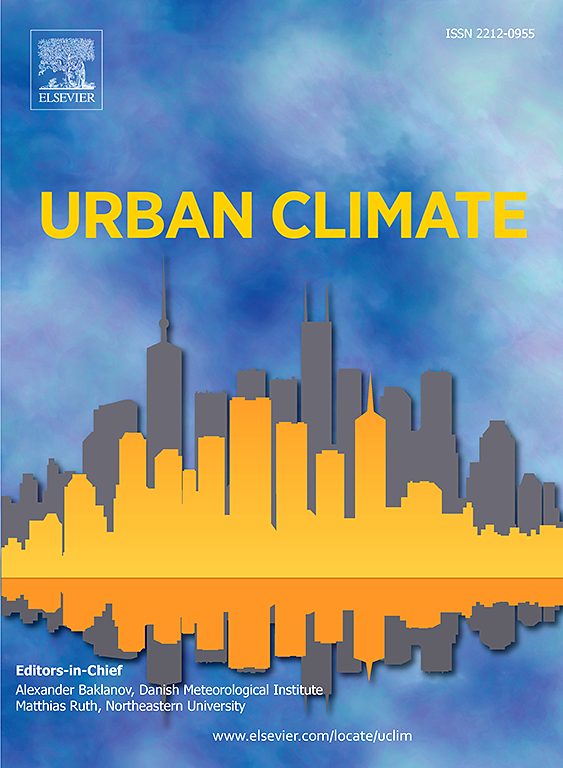How is adaptation intention shaped in urban Pakistan? A multigroup gender analysis
IF 6
2区 工程技术
Q1 ENVIRONMENTAL SCIENCES
引用次数: 0
Abstract
Men and women's choice and ability to respond to climate change is shaped by multiple, intersecting factors, including gender roles, power dynamics, socio-economic variables, psychological processes, and systemic inequalities. This study is the first to examine gendered differences in climate change adaptation intentions in urban Pakistan, using survey data from 552 men and women in two urban towns. Using multigroup structural equation modeling and drawing on the analytical frameworks of Protection Motivation Theory and intersectionality, we explored different factors that influence individual adaptation decisions. Findings reveal distinct gender patterns: men's adaptation intentions are strongly influenced by a belief in climate change, perceptions of climate change impacts, and belief in governmental support, whereas women are less influenced by these factors and show negative responses to perceived government support. Furthermore, maladaptive beliefs hinder men's adaptation intentions, with minimal effect on women. Age and education positively correlate with men's adaptation intentions but not with women's. Gendered adaptation intentions are shaped by socio-economic factors, patriarchal norms, resource constraints, and psychological factors. Climate adaptation programs and strategies should not only engage women but also strategically address the broader power dynamics and systemic inequities that hinder adaptive capacities of marginalized groups. Recommendations include developing gender-responsive and transformative policies and programs, enhancing institutional trust through accountability mechanisms, promoting community-driven initiatives, and investing in women's everyday adaptation strategies. This approach is key to building stronger resilience and enabling inclusive, impactful climate solutions in Pakistan's rapidly growing urban centers.

巴基斯坦城市的适应意向是如何形成的?多群体性别分析
男性和女性应对气候变化的选择和能力受到多种交叉因素的影响,包括性别角色、权力动态、社会经济变量、心理过程和系统性不平等。这项研究首次考察了巴基斯坦城市气候变化适应意愿的性别差异,使用了来自两个城镇的552名男性和女性的调查数据。利用多群体结构方程模型,借鉴保护动机理论和交叉性分析框架,探讨了影响个体适应决策的不同因素。研究结果揭示了明显的性别模式:男性的适应意向受到对气候变化的信念、对气候变化影响的认识和对政府支持的信念的强烈影响,而女性受这些因素的影响较小,对感知到的政府支持表现出消极反应。此外,适应不良的信念阻碍了男性的适应意愿,对女性的影响最小。年龄和受教育程度与男性适应意愿呈正相关,而与女性不相关。性别适应意向受社会经济因素、父权规范、资源约束和心理因素的影响。气候适应计划和战略不仅应让妇女参与,还应战略性地解决阻碍边缘化群体适应能力的更广泛的权力动态和系统性不平等问题。建议包括制定促进性别平等和变革性的政策和方案,通过问责机制增强机构信任,促进社区驱动的倡议,以及投资于妇女的日常适应战略。这种方法对于在巴基斯坦快速发展的城市中心建立更强的抵御能力和实现包容性、有影响力的气候解决方案至关重要。
本文章由计算机程序翻译,如有差异,请以英文原文为准。
求助全文
约1分钟内获得全文
求助全文
来源期刊

Urban Climate
Social Sciences-Urban Studies
CiteScore
9.70
自引率
9.40%
发文量
286
期刊介绍:
Urban Climate serves the scientific and decision making communities with the publication of research on theory, science and applications relevant to understanding urban climatic conditions and change in relation to their geography and to demographic, socioeconomic, institutional, technological and environmental dynamics and global change. Targeted towards both disciplinary and interdisciplinary audiences, this journal publishes original research papers, comprehensive review articles, book reviews, and short communications on topics including, but not limited to, the following:
Urban meteorology and climate[...]
Urban environmental pollution[...]
Adaptation to global change[...]
Urban economic and social issues[...]
Research Approaches[...]
 求助内容:
求助内容: 应助结果提醒方式:
应助结果提醒方式:


